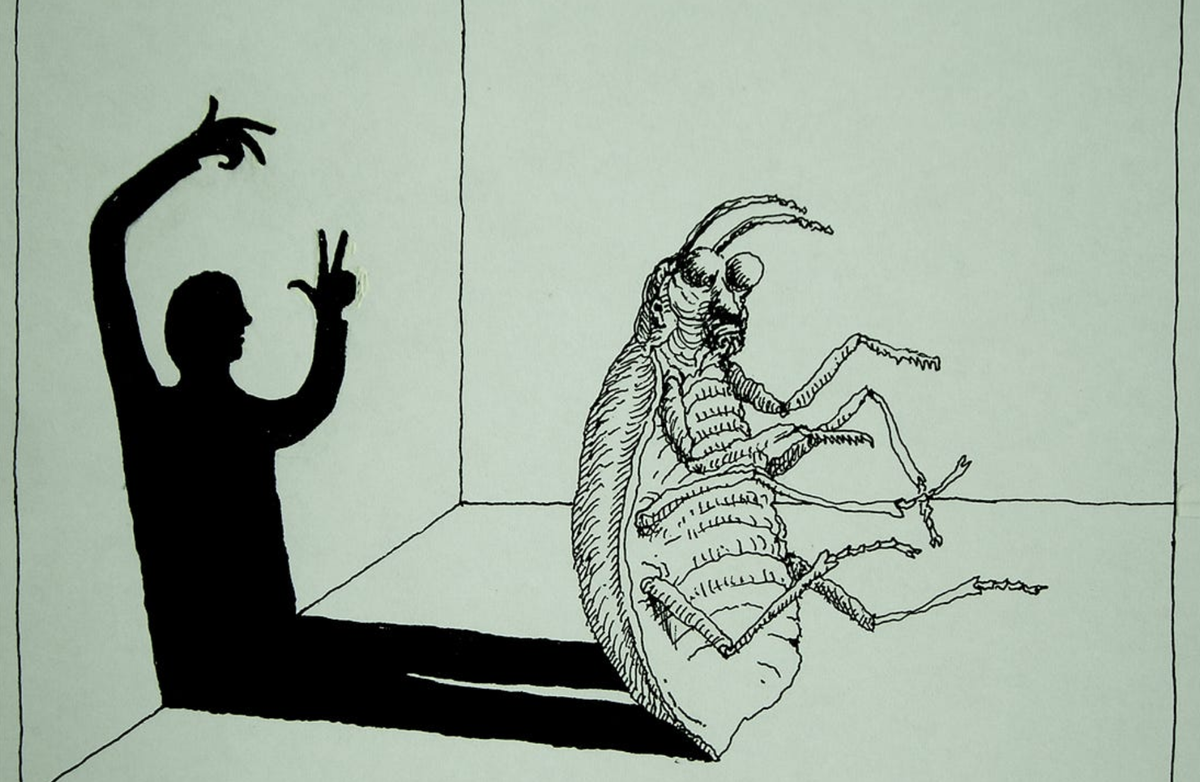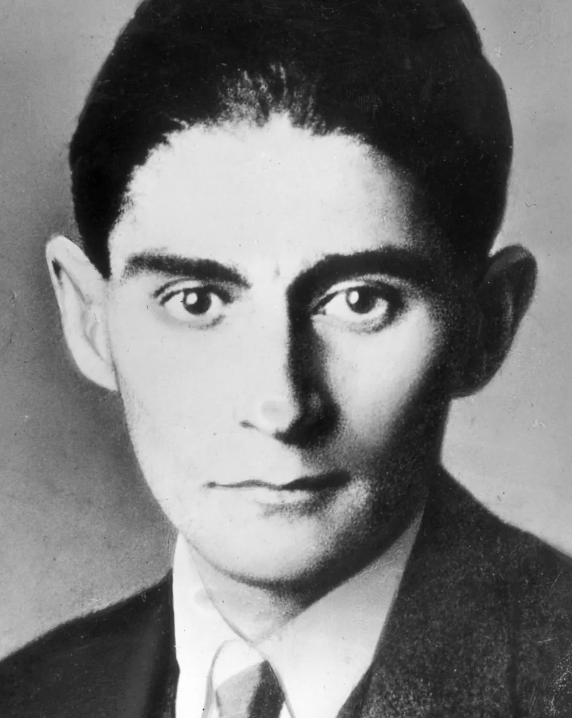From Breadwinner to Bug: A Review on The Metamorphosis By Franz Kafka
By Rawnie Sun ’25, Head Editor-in-Chief; Edited by Rebecca Liu ’25, Head Editor-in-Chief

Instead of cleaning my closet that is desperate for an incisive organization or hitting up the beach this summer, I found myself immersed in the allegory present in The Metamorphosis by Franz Kafka. Published in 1915, the three-chapter long novella took me less than an hour to read but kept my mind reeling for much longer.
Kafka has a way of writing that is easy to read and can be interpreted as basic. However, as you unpack the layers of his writing, especially in The Metamorphosis, there is impressive depth. Kafka starts The Metamorphosis with a bizarre situation — the protagonist, Gregor Samsa, wakes up in the body of a huge and repulsive insect. Kafka weaves a tale that is one long extended metaphor about transformation, exploring topics such as anxiety and self-worth. The entire novella is a critique of capitalism (I must say now that it is astonishing that no matter how much I avoid my Extended Essay, it seems to be ever prevalent even in my passions) and just how minuscule we are to society.

(Spoilers ahead!) Revealing the fragility of an identity tied to labour and the corporate world, Kafka critiques the pressures of being human. The novella introduces us to Gregor, who despises his job but is still resolved to work as he attempts to pay off his father’s debts. When he wakes up as an insect with an “armour-hard back” (6) and a “brown, arched abdomen,” he reasons that he is “in fact quite well” (6) and ready to get back to the crushing day-to-day grind as a travelling salesman. However, as Gregor eventually understands, he is not physically able to work. His family is at a loss of what to do with him: Gregor’s worth to both himself and his family lies within his ability to work. As a result, Gregor experiences a massive sense of alienation from his identity, his family, and society at large. Kafka uses a metaphor to showcase this alienation — Gregor’s physical transformation showcases his internal struggle as the very foundation of his identity begins to crumble.
As Gregor’s identity disintegrates, so do his relationships. His value quickly begins to diminish in the eyes of others as their attitudes shift from concerned to disgusted, and his family’s care for him wanes. Without the ability to work, Gregor becomes a burden to his family who reacts in concern, confusion, and finally, contempt. This emotional pain is only amplified through Kafka’s use of surrealism and imagery. The grotesque insect form of Gregor symbolizes the effects of capitalism, in which people are simply parts of an efficient machine. When they fail to function, they’re cast aside, no longer part of the production process and therefore no longer worthy of attention or care. Kafka is able to weave a tale of this deteriorating love — The Metamorphosis is heart-wrenching yet revealing of the human condition. Kafka lays bare the truth that love, even familial, can be precarious and conditional. It’s also reflective of broader society, reminding us that society often casts aside those who cannot conform to economic, aesthetic, or even basic, physical standards. Gregor, in a further loss, transforms even more into an insect. He loses the ability to communicate like a human, forced to use guttural chittering sounds instead. In the eyes of his family, this is the last straw. Gregor becomes tragically inadequate in every aspect: what good is he if he will never support the family again? This theme of alienation is highlighted as Gregor finds the emotional distance between himself and his family widening with every unintelligible noise. As a result, Grete, Gregor’s sister who initially cared for him, tells the family that they must get “rid of it.”
There is massive irony in this situation as it is Gregor’s initial desire to support his family that has ultimately led to this situation. This obligation has not only defined him but has also become the source of Gregor’s despair. As his identity became more and more isolated from his family and humanity, I couldn’t help but sense that this existential surrender would lead to something more. Which is worse: Gregor being cast away and subsequently killed by his family or Gregor succumbing to his own despair?
It is the a mix of both options that happen: Gregor gives up while his family neglects him. Is this the release of a pained spirit of a tragic story or simply a silent critique that has resulted in an existential surrender? It is up to the readers to decipher Kafka’s intent. Nonetheless, it is inarguable that The Metamorphosis is haunting in its reminder that identity is fragile, love is conditional, and the human condition may be one of despair. This cautionary commentary in the form of a short novella has left me with my own little existential crisis and will no doubt leave an indelible mark on anyone’s understanding of what it means to be human.



